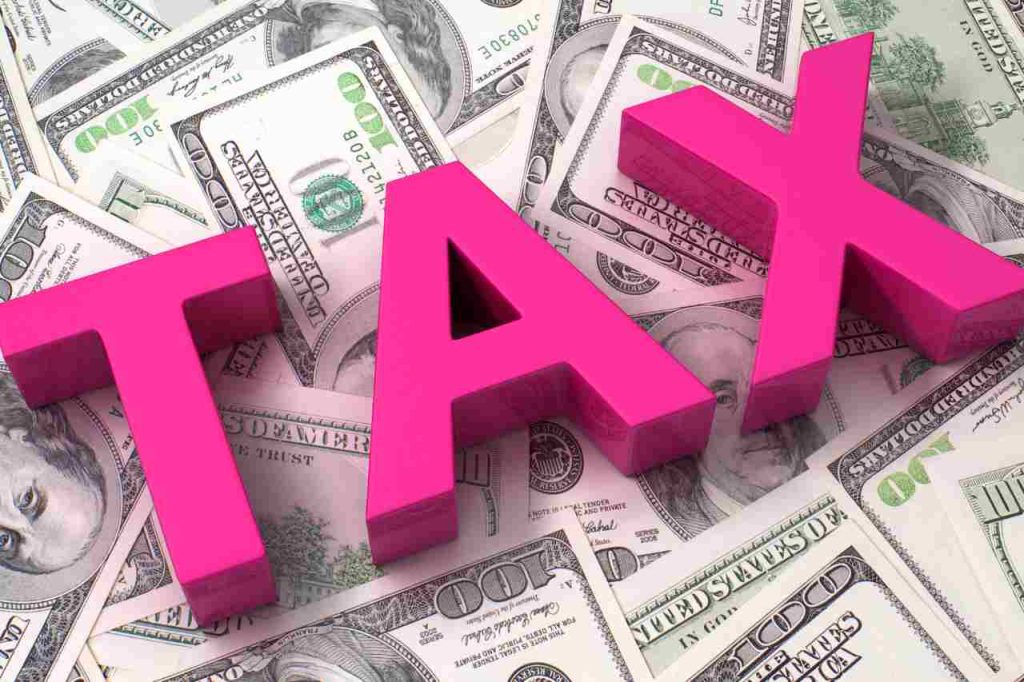Table of Contents
Cryptocurrency has rapidly evolved from a fringe technology to a mainstream financial asset, garnering the attention of investors, businesses, and regulators alike. As the adoption of cryptocurrencies grows, so does the need for clear taxation guidelines.
The Internal Revenue Service (IRS) has taken significant steps to regulate cryptocurrency taxation in the United States. This blog post will explore the essential aspects of cryptocurrency taxation and how to navigate the IRS guidelines to ensure crypto tax compliance.
Understanding Cryptocurrency Taxation. How to pay taxes on crypto
Classification of Cryptocurrencies
The Internal Revenue Service (IRS) has unequivocally categorized cryptocurrencies as property rather than traditional currency. This designation signifies a fundamental deviation from how we typically perceive money. Unlike the U.S. dollar or other fiat currencies, which primarily function as a medium of exchange, cryptocurrencies are treated as property assets.
Consequently, every cryptocurrency transaction involving buying, selling, or trading is considered a taxable event under the IRS guidelines. This unique classification sets the stage for the complex world of cryptocurrency taxation in the United States.
The IRS’s classification of cryptocurrencies as property carries significant tax implications. Specifically, cryptocurrencies are subject to capital gains taxation. This means that when you dispose of a cryptocurrency, whether by selling it for cash or trading it for another digital asset, any resulting profit or loss is treated as a capital gain or loss.

This tax liability can arise even if you still need to convert your cryptocurrency into traditional currency. The IRS views each cryptocurrency transaction as a potential source of capital gains, underscoring the importance of diligently tracking and reporting these activities for tax purposes.
Classifying cryptocurrencies as property, leading to capital gains taxation, underscores several crucial distinctions from conventional currency. Firstly, it means that cryptocurrency transactions aren’t subject to traditional income tax rates; instead, they adhere to the capital gains tax framework.
Secondly, the duration of holding cryptocurrency becomes significant, as it determines whether gains are categorized as short-term or long-term, each with its tax rate.
Lastly, it emphasizes the importance of accurate recordkeeping and compliance, as the IRS has been increasingly vigilant about enforcing tax obligations in the evolving landscape of digital assets. Understanding these nuances is essential for individuals and businesses navigating the complexities of cryptocurrency taxation.
Taxable Events
Several common taxable events in the world of cryptocurrency include:
Buying or exchanging one cryptocurrency for another
When you engage in buying or exchanging one cryptocurrency for another, it constitutes a taxable event according to IRS guidelines. Each trading instance, such as swapping Bitcoin for Ethereum, triggers a tax obligation.
Understanding that these transactions are not tax-free swaps but with potential capital gains or losses is crucial. To ensure compliance, you must meticulously track and report each trade.
To calculate the gains or losses for each trade, you typically determine the fair market value of the cryptocurrency you acquired during the exchange. This value is then compared to the cost basis of the cryptocurrency you traded away.

You’ve realized a capital gain if the fair market value is higher than your cost basis. Conversely, you’ve incurred a capital loss if the fair market value is lower. Accurate recordkeeping and understanding the tax implications of these crypto-to-crypto exchanges are essential to meeting your tax obligations and avoiding penalties or audits by the IRS.
Selling cryptocurrency for fiat currency (e.g., USD).
Selling cryptocurrency for fiat currency, like U.S. dollars, is a crucial transaction with tax implications that every cryptocurrency holder should know. This exchange triggers a taxable event, meaning you must report it to tax authorities and potentially pay taxes on any gains you’ve made or claim losses.
The key to navigating this process successfully is accurately determining the profits or losses, which hinges on knowing the value of the cryptocurrency at the time of the sale.
To calculate your gains or losses, you typically subtract the cryptocurrency’s cost basis (the original purchase price) qui, you’ve made a capital gain and may be liable for capital gains taxes.
Based on the asking price. Whenever the selling price exceeds the cost basis, you’ve incurred a capital loss, which can be used to offset other capital gains or, in some cases, reduce your taxable income.
Maintaining detailed records of your cryptocurrency transactions, including purchase and sale dates, amounts, and prices, is essential to ensure accurate reporting and compliance with tax laws. Additionally, consult with a tax professional or accountant specializing in cryptocurrency taxation to help you navigate the complexities of reporting and meet your tax obligations.
Using cryptocurrency to purchase goods or services
When you use cryptocurrency to make purchases of goods or services, it’s essential to recognize that this action is not just a simple exchange; it’s a taxable event with implications for your tax liability.
The IRS views such transactions as if you had sold your cryptocurrency for its fair market value at the time of the purchase and then used the proceeds to acquire the goods or services. This means that you must report any potential capital gains or losses resulting from the cryptocurrency’s change in value between the time of acquisition and the time of expenditure.

To calculate the tax impact, you’ll need to determine the cryptocurrency’s fair market value at the moment of the transaction. If the value has increased since your initial acquisition, you may incur a capital gain, potentially subjecting you to capital gains tax.
Conversely, if the value has decreased, you might face a capital loss, which could be used to offset other gains or reduce your overall taxable income.
Accurate recordkeeping and timely reporting are essential when using cryptocurrency for purchases, as they ensure compliance with tax regulations and help you calculate the tax liability associated with your transactions.
Consulting with a tax professional or specialist knowledgeable in cryptocurrency taxation can be invaluable in navigating the complexities of reporting and ensuring full compliance with tax laws.
Obtaining cryptocurrency in exchange for products or services
When you get paid in cryptocurrency for products or services, it’s essential to recognize that this constitutes taxable income and must be reported accordingly. The IRS treats these payments like any other compensation or gains you receive.
You use the cryptocurrency’s fair market value at receipt to calculate the taxable amount. This value can fluctuate significantly, so tracking it accurately when you receive the cryptocurrency is essential, as it will determine the income you need to report.
Failure to report cryptocurrency income can have legal and tax consequences, including penalties and fines. Therefore, it’s crucial to maintain detailed records of cryptocurrency transactions and seek advice from a tax expert or accountant well-versed in cryptocurrency taxation to enable proper reporting and compliance with tax laws.
By accurately reporting cryptocurrency income, you can avoid potential legal issues and fulfill your tax obligations as required by the IRS.

Recordkeeping
To ensure crypto tax compliance, it’s crucial to maintain detailed records of all your cryptocurrency transactions. This includes dates, transaction amounts, values at the time of the transaction, and the parties involved. Proper recordkeeping simplifies calculating gains or losses when it comes time to file your taxes.
Keeping a comprehensive record of your cryptocurrency transactions is not just good practice; it’s essential for staying compliant with IRS guidelines. With accurate records, it can be easier to calculate your tax liability accurately. Consider using cryptocurrency tracking tools or software to help streamline the recordkeeping process.
Navigating IRS Guidelines
Reporting Cryptocurrency Transactions
Reporting cryptocurrency transactions to the IRS is critical for anyone in the crypto market. The IRS takes cryptocurrency taxation seriously, and failure to report accurately can result in severe consequences.
To comply with tax regulations, taxpayers must complete Schedule 1 of their annual tax return, which includes a specific question about their involvement with virtual currency. Honesty and transparency are essential here, as providing false or incomplete information can lead to penalties and legal consequences.
Accuracy in reporting your cryptocurrency activities is of utmost importance. The IRS has developed sophisticated tools and data analytics capabilities to track digital currency transactions. Any discrepancies between the information you provide on your tax return and what they can independently verify may trigger an audit or further investigation.
To avoid such complications, maintain comprehensive records of your cryptocurrency transactions, including purchase and sale dates, amounts, fair market values at the time of transactions, and any associated fees.

Consulting with a tax professional or accountant experienced in cryptocurrency taxation can provide valuable guidance and help ensure that you fulfill your tax obligations accurately and avoid potential legal and financial pitfalls.
Calculating Gains and Losses
Calculating gains and losses in cryptocurrency transactions is a vital aspect of tax compliance, and it can indeed be intricate due to the volatility and frequent price fluctuations in the crypto market. To achieve accurate calculations, the IRS provides guidelines that necessitate tracking the fair market value of cryptocurrencies in U.S. dollars at the precise time of each transaction.
This means that you should have detailed records of cryptocurrency acquisition and sale, including timestamps and the corresponding market prices in USD. The gains or losses are then calculated by subtracting the cost basis (the purchase price) from the selling price, considering any fees associated with the transactions.
Understanding and maintaining records of the cost basis for your cryptocurrency holdings are fundamental for precise tax reporting. The cost basis represents the original amount you paid to acquire a cryptocurrency. When you sell or trade that cryptocurrency, the difference between the sale price and the cost basis determines whether you have a taxable capital gain or a capital loss.
Accurate recordkeeping is paramount, as miscalculations can lead to overpaying or underreporting taxes, potentially triggering audits or penalties. Utilizing specialized cryptocurrency tax software or consulting with a tax professional experienced in cryptocurrency taxation can be invaluable for those navigating the complexities of calculating gains and losses in the crypto world.

Holding Period Matters
The duration for which you hold a cryptocurrency can affect the tax rate you’ll pay on any gains. The payments are typically considered short-term capital gains if you hold a cryptocurrency for less than a year before selling or trading it. They are subject to your ordinary income tax rate. Holding for over a year can qualify you to profit from the reduced long-term capital gains tax rate.
The rate of short-term capital gains tax is much greater than the rate of long-term capital gains and is based on your regular income tax bracket. Holding onto your cryptocurrency investments for at least a year can be advantageous to qualify for a lower tax rate.
Reporting International Transactions
If you engage in international cryptocurrency transactions, additional reporting may be required. The IRS has been increasingly vigilant about tracking offshore accounts and assets, including cryptocurrency holdings. Ensure compliance with all relevant reporting requirements to avoid legal consequences.
For U.S. taxpayers with cryptocurrency holdings in foreign exchanges, knowing the Report of Foreign Bank and Financial Accounts (FBAR) and the Foreign Account Tax Compliance Act (FATCA) requirements is crucial. Failure to report foreign accounts and assets can result in severe penalties.

Conclusion
Cryptocurrency taxation can be a complex and ever-evolving field, but navigating the IRS guidelines diligently is essential to maintain legal compliance. Keeping detailed records of your transactions, accurately calculating gains and losses, and reporting your cryptocurrency activities on your tax returns are vital steps to avoid potential penalties and legal issues.
As the cryptocurrency landscape evolves, staying informed about keeping up with tax laws and seeking out expert guidance as necessary will help you stay on the right side of the IRS and ensure your crypto tax compliance.
Remember that cryptocurrency taxation is not something to take lightly, and it’s always a good idea to consult with a tax professional or accountant specializing in cryptocurrency to ensure you’re meeting all your obligations and maximizing any potential tax advantages within the legal framework.










